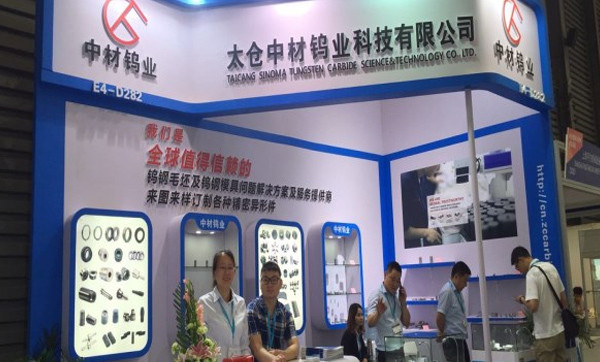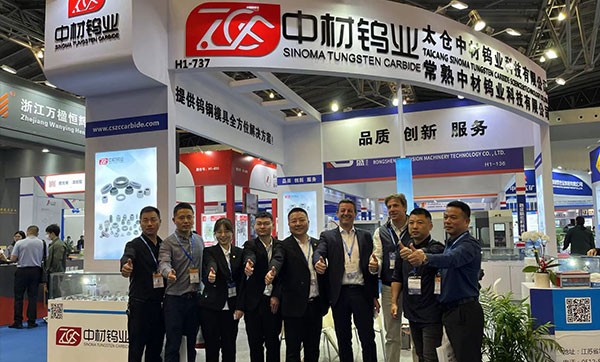In the highly specialized and competitive manufacturing industry, the production of tungsten carbide molds and dies demands precision, efficiency, and seamless coordination across various stages of the production process. Tungsten carbide, known for its exceptional hardness, wear resistance, and durability, is a critical material in industries such as automotive, aerospace, electronics, and tool manufacturing. To meet the growing demands for high-quality tungsten carbide products, manufacturers are increasingly turning to Enterprise Resource Planning (ERP) systems to streamline their operations. Here are the key advantages of using ERP systems in the production process of tungsten carbide molds and dies:
The production of tungsten carbide molds and dies involves multiple complex steps, including powder mixing, pressing, sintering, and finishing. An ERP system provides advanced production planning and scheduling tools that optimize the use of resources, reduce downtime, and ensure timely delivery of products. By integrating real-time data from various departments, manufacturers can create accurate production schedules, allocate resources efficiently, and avoid bottlenecks.
Tungsten carbide production requires precise control over raw materials such as tungsten powder, cobalt, and other additives. ERP systems enable manufacturers to maintain optimal inventory levels by tracking material usage, forecasting demand, and automating reorder processes. This minimizes waste, reduces storage costs, and ensures that production is never halted due to material shortages.
Quality is paramount in the production of tungsten carbide molds and dies, as even minor defects can lead to product failure. ERP systems facilitate rigorous quality control by integrating quality management modules that monitor every stage of the production process. They also provide traceability, allowing manufacturers to track the origin of raw materials, monitor production conditions, and identify the root cause of any defects. This ensures compliance with industry standards and enhances customer satisfaction.
The production of tungsten carbide materials involves significant costs, including raw materials, energy, and labor. ERP systems provide comprehensive financial management tools that help manufacturers monitor costs, analyze profitability, and make data-driven decisions. By integrating financial data with production and inventory data, businesses can identify cost-saving opportunities and improve overall profitability.
ERP systems act as a centralized platform that connects all departments, from procurement and production to sales and finance. This fosters better communication and collaboration among teams, ensuring that everyone has access to the same up-to-date information. For example, the sales team can provide accurate delivery timelines to customers based on real-time production data, while the procurement team can align material orders with production schedules.
As demand for tungsten carbide molds and dies grows, manufacturers need systems that can scale with their operations. ERP systems are highly scalable and can be customized to meet the specific needs of a business. Whether a company is expanding its product line, entering new markets, or increasing production capacity, an ERP system can adapt to these changes without disrupting operations.
ERP systems collect and analyze vast amounts of data from across the organization, providing valuable insights into production efficiency, resource utilization, and market trends. Manufacturers can use this data to identify areas for improvement, optimize processes, and make informed strategic decisions. For example, analyzing production data may reveal opportunities to reduce energy consumption or improve machine utilization rates.
The production of tungsten carbide materials is subject to strict regulatory requirements and industry standards. ERP systems simplify compliance by automating documentation, generating reports, and maintaining audit trails. This reduces the risk of non-compliance and ensures that manufacturers can quickly respond to regulatory changes.
Many modern ERP systems include CRM modules or integrate seamlessly with standalone CRM platforms. This allows manufacturers to manage customer interactions, track orders, and provide personalized service. By understanding customer needs and preferences, businesses can build stronger relationships and increase customer loyalty.
Sustainability is becoming increasingly important in manufacturing. ERP systems help manufacturers reduce their environmental impact by optimizing resource usage, minimizing waste, and tracking energy consumption. For example, by analyzing production data, manufacturers can identify opportunities to reduce carbon emissions or recycle materials more effectively.
The adoption of ERP systems in the production of tungsten carbide molds and dies offers numerous advantages, from improved efficiency and quality control to cost savings and scalability. By integrating all aspects of the production process into a single platform, manufacturers can enhance their competitiveness, meet customer demands, and drive long-term growth. As the industry continues to evolve, ERP systems will play an increasingly vital role in helping manufacturers navigate the complexities of tungsten carbide production and achieve operational excellence.
In a world where precision and efficiency are paramount, ERP systems are no longer a luxury but a necessity for manufacturers of tungsten carbide materials. Investing in the right ERP solution can transform production processes, unlock new opportunities, and ensure sustainable success in this demanding industry.
Consistently utilizing the ERP system ensures product quality, enhances production efficiency, and guarantees timely delivery.




